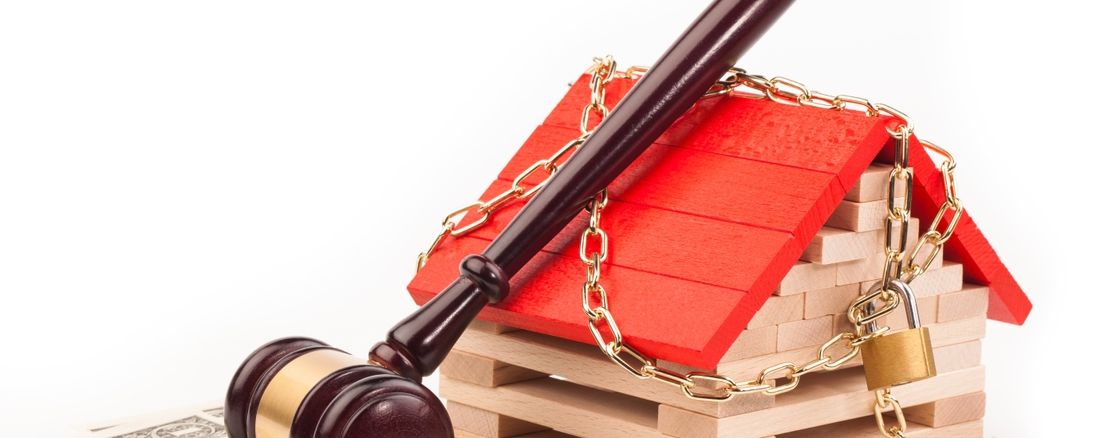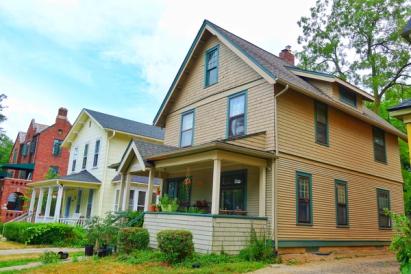Can You Buy a House With a Lien?
Written by:
Andrew Tavin
Andrew Tavin
Personal Finance Writer
Andrew Tavin a contributing writer for Own Up.
See full bio
Fact Checked by:
Dan Silva
Dan is the Vice President of Marketplace Lending at Own Up. Throughout his career, he has held executive leadership positions in the mortgage and banking industry.
See full bio

For most American homeowners, their home is by far their most valuable item of personal property. This is why when people don't pay large bills, creditors are likely to put a lien on their house to get back what they are owed. Common debts and judgments that attach directly to the title of a home include tax liens, mechanics liens placed by unpaid contractors, and liens from condo associations for unpaid dues.
Therefore, if you're looking to buy a house with a lien on it, the cost of the lien will have to be settled first or it'll remain on the property.
How Do Property Liens Work?
There are two main types of liens on properties: voluntary and involuntary.
A voluntary lien is most often a loan agreement between a property owner and a lender in which the property is used as collateral to secure a loan.
One of the most common types of voluntary liens is a mortgage loan. A prospective homebuyer agrees to a consensual lien on their home in order to secure the funds to purchase the home. If they miss too many mortgage payments, the mortgage company will initiate the foreclosure process to take ownership of the property.
Other examples of voluntary liens include HELOCs, which stands for home equity line of credit.
Voluntary liens are a normal part of many financing processes and can have a positive impact on your credit score as long as you always make your payments on time.
Involuntary liens, however, are a different matter. There are multiple different types of involuntary liens.
Types of Involuntary Liens
Here we are going to walk you through six types of involuntary liens.
1. Judgment Liens
A judgment lien is issued by a court if a defendant refuses or is unable to pay money that they owe a plaintiff. This could be due to missed debt payments or damages the defendant caused.
There are many different subtypes of judgment liens, like child support liens, which are issued against a parent that doesn't pay child support.
2. Property Tax Lien
If you have delinquent property taxes you could receive a tax lien notice. There will be a period of time, called a redemption period, during which you can pay the taxes in full to remove the lien.
If the taxes are not paid during that time, the property will be sold to cover the delinquent property taxes. Tax sales tend to be handled by auction. If you are in the real estate market, you can look at your state's auction website to see what tax lien properties are available; however, buying a house with a tax lien can be a risky type of asset purchase as you may not be able to inspect the property beforehand.
3. Federal Tax Lien
A federal tax lien is similar to a property tax lien, but it's issued due to delinquent taxes owed to the federal government, like income taxes.
4. Municipal Lien
A municipal lien is issued against a property by a government due to unpaid fees. A lien due to unpaid property taxes is technically a type of municipal lien.
5. Mechanic's Lien
A mechanic's lien or construction lien is issued if a property owner does not pay a contractor for the work they performed.
6. Association Lien
If a member of a homeowners' association doesn't pay their dues, a lien can be issued against their home.
How Do You Know if a Property Has a Lien on It?
Outstanding liens are generally public record and accessible through the county records or state record agency. Because liens can complicate the purchase process, it's a good idea to know about them in advance.
Unfortunately, this hassle is not always revealed until late in the home buying process when you have already found your dream house.
A title search is always part of the home purchasing process, even if there is no mortgage involved. Multiple sources are searched, including deeds, county land records, state and federal real estate tax lien databases, and court records.
If the current owners hold the only claim to the title, it's considered clean. If, on the other hand, there are outstanding liens or ownership disputes, they will need to be resolved before the sale can close.
At the closing table, buyers will see a line in their closing costs for title insurance. Title insurance, depending on the type, protects either lenders or owners against claims of ownership the title company may not have been able to find. This includes wills, deeds, outstanding mortgages, and liens.
How Do You Buy a Home With a Lien?
Liens are applied to property, not people. So while missed debt payments may damage the credit rating of the previous owners, the existing debt burden will be held by the current owners after the sale.
For this reason, many buyers will not purchase a property until the liens are paid off, so the sellers usually agree to use the proceeds of the sale to pay off the liens. A mortgage company may refuse a loan agreement due to outstanding liens.
It's advisable to work with a real estate agent or attorney for legal advice if you're considering purchasing a home with complex lien issues. If you're really set on a certain property, you could try to work out a payment plan that might split the cost of the existing debt burden.
Additionally, some liens are applied in error, in which case the seller should contact the entity that made the mistake for a release of lien.
Which Liens Take Priority?
What if a property has multiple liens on it?
The order in which liens are paid off is a matter of the order they were recorded, which means mortgage liens generally come first.
There are some exceptions to this ordering system. Liens due to delinquent property taxes tend to receive first priority and mechanical liens may be given priority over another type of lien.
Creditors have the right to request a property be sold to pay off a lien, usually by a foreclosure sale. Most won't, however, if there are also mortgage liens and tax liens ahead in the line. Instead of foreclosing on a lien, creditors wait until a property is sold to try to recoup their money.
Similarly, lenders will not want to finance a mortgage if the property has a state or federal lien due to delinquent taxes. Many loan agreements require mortgage payments to be made into an escrow account and will use a portion of the funds to cover property taxes.
Alternatively, a lender may cover a borrower's delinquent property taxes to avoid a tax lien sale. The cost of the taxes will be added to what the borrower owes so the mortgage company will maintain top priority in the event of foreclosure.
What is a Distressed Sale?
Distressed sales occur when a seller urgently needs to sell a house because they can't manage the financial burden. These are different from conventional sales and need to be undertaken with caution.
Distressed sales often involve homes needing repairs because the seller couldn't afford them. The upside for a buyer is the potential for a short sale.
Short sales happen when a home sells for less than its current value. In short sales, lenders agree to release the lien in exchange for a portion of the money they're owed.
This is different than a foreclosure, where a lender forecloses on a property and sells it at a public auction. Foreclosing a home typically wipes out all other liens on a property.
The Bottom Line
Buying a home can be difficult in the best of situations, especially if you aren't working with a real estate agent. Issues like liens only complicate the buying process and could require extensive input from a real estate attorney to properly unwind. It might be worth navigating for the right property, but you should know what you're getting into.


